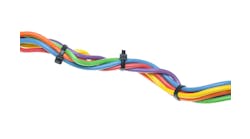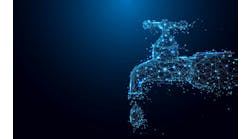Although I didn't see it then, I now think that 95% of what they taught me in school has been useful. Often, surprisingly, even as a process engineer, this included my English and social studies lessons. However, only the tip of the iceberg of the knowledge needed for both career and personal life can be crammed in during the brief school period—perhaps only 5% of what's needed. One must learn the other 95% out of school, but how?
Some engineers, I've observed, are satisfied to memorize institutional knowledge from the experts—the operators, other engineers and managers. I've also observed that such legacy knowledge was sprinkled with folklore like explanations of the mysterious, intuition leaps, outdated rules from prior versions of the process, rationalizations to mask prior nonsuccess or pre-computer expediencies. And, it was often confounded by language intended to protect secrets or to relay taboos and procedures to the uneducated. Even when wrong, this “knowledge” can be rapidly acquired by the novice, and it's comfortably implemented within the human organization that accepts it. This approach to learning conveys the appearance a novice is seeking—urgency, compatibility, effectiveness, credibility, etc.
However, wrong knowledge leads to ineffective action. Should we let sleeping dogmas lie? My preference is to confirm, not blindly accept. Understand the mechanistic cause-and-effect relation, and validate the supposition with data. Then, take action on real understanding, not flawed concepts.
Self-guided learning and self-validation of knowledge are essential for professional development and for personal growth, for quality, validity, sustainability and success. Different from teacher-directed learning, there is no instructor to choose the material to be learned, the book or lecture that supports it, or the tests to evaluate learning. Probably, the knowledge you need is new to the company, and your supervisors don’t know what it is. So, who becomes your teacher?
You must transition from being a passive, accepting student to becoming your own personal, active instructor and evaluator, but how?
Here’s some advice on becoming your own teacher:
• Have expectations about an equation, rule, theory or procedure. If it’s right, what do you expect to see, and not to see? Know how to test, assess and evaluate the knowledge.
• Don’t just accept the procedure, recipe, formula or rule. Understand the basis, assumptions and context. Know the why about it. Be able to explicitly and quantitatively express the cause-and-effect mechanism.
• Don’t just accept computer output. Test it over a range of inputs and givens, and be confident that the output is consistent with your expectations.
• Test your understanding by creating your own exercises. Explore alternate examples, values, assumptions and the inverse relation. Be sure that trends are as expected.
[pullquote]• What else does it apply to? What if you extrapolate it? Does the application make sense?
• Compare a next-step better model to ideal calculations. Does it approach the ideal in the limit? Does it fit expected trends, and homologous trends? When you adjust a parameter value, does the result behave as expected?
• Compare to alternate methods, such as an old-style handbook graphical method, software Product A, software Product B or prior work.
• Seek knowledge from product bulletins, handbooks, trade magazines, vendors’ white papers and the Internet. Textbooks are an OK source. In spite of its importance to the academic community, avoid the scientific journal literature when you're seeking practical knowledge.
• Think of analysis, synthesis and evaluation in terms of Bloom’s Taxonomy of cognitive skill. Critically question the basis and assumptions in your knowledge. See how to apply it, how to integrate it in context. Consider how stakeholders will see the outcomes. Reveal how you know that it's correct by providing assessments of multiple, comprehensive and competing criteria.
• Be your own “devil’s advocate.” Take the perspective of those who could claim to have an alternate opinion about the thing (maintenance, purchasing, labor, community, politicians, scientists, operator, opposition, etc.), and consider what aspects they might find desirable, or undesired.
• Learn by doing, not by studying. Don’t just read or follow. Extrapolate on your own. Prepare by doing, not by intellectualizing. I tell my students the secret to success is this, “Do not study.” Then pretend to have overlooked the comma, add it, and it says “Do, not study.”
• Test and evaluate your own learning. Make your own quiz problems. If you can’t, you don’t understand it yet. Solve them. Implement your procedures in a spreadsheet or structured code, and explore the validity of the outcomes.
• Guide learning by what's needed to be able to do some task, not by what's interesting, or by the basic body of knowledge, or by what everyone else knows.
• Test it on simple, ideal cases. Show that it gives the right answer. Then test it on more complicated cases, and show that it gives the answers that several experts agree on. Be sure to challenge it. Don’t choose one or two cases that are simple to implement because that can provide a false affirmation. For example, my favorite pretend claim is that addition is the same as multiplication. I use 2 x 2 = 2 + 2, and 0 + 0 = 0 x 0 as examples to defend that claim. There are an infinite number of supporting examples. So, the claim must be true. Challenge your knowledge and understanding with situations that might reveal the error.
[sidebar id =1]
• Test it on real data, not just by calculations. It should provide a good-enough match to the real data.
• Accept your new knowledge on a tentative basis, until you come to know better. You'll have a tendency to want to accept your self-learned knowledge. You created it. It's your progeny. It may be difficult for you to see its inadequacy.
• If it’s a numerical procedure, see if smaller step sizes or convergence criteria change the answer. If right, calculated values should not change.
• Extrapolate the application to large chronological time or large sizes, and to initial values or very small dimensions. Test parameter and coefficient value extremes of 0, 1 or ∞. Take variable values to extreme conditions (dilute or concentrated, hot or cold, high or low flow rate, short or long tube, early or long time), and look at asymptotic limits of the model terms. Do they reduce to ideal conditions? Does it still make sense?
• When the data is functionally transformed, is the trend as expected? For instance, when a power-law model is log-transformed, the data trend should be linear.
• Consider and report the uncertainty in any value. There is uncertainty in the givens, in the coefficients, and in the models. How do these sources affect the output? How does uncertainty on the application impact a decision?
[sidebar id =2]
• Seek challenges to your skill or knowledge that are sufficient, meaning that all relevant cases are considered and testing is complete with respect to your context.
• Also, seek challenges that are credible, meaning that it is tested with meaningful, known cases, and returns “right” answers.
Along the way, don’t be seduced by pursuing the good thing of learning and developing true knowledge. Learning is fun. It rewarded you in school, but a focus on learning could distract time and energy from your job. Focus on bringing projects to fruition. Don’t think that your task is to learn. That was your in-school student role. As a professional, prepare for bringing it to fruition, implementing it, getting results, and demonstrating ability and benefit. Value ability over knowledge. Don’t be seeking to test yourself with "paper exercises," or idealized, isolated, Mensa-type intellectual challenges. Test learning by demonstrated functionality or "bringing it to fruition."
Also, realize that even mankind’s best theories have been proven false. We once thought that the magical substance called the ether transmitted electromagnetic waves. That led to Maxwell’s equations, which were affirmed by data of that era. The caloric theory of heat led to the diffusion equations, again, affirmed by data. At one time, data and logic seemed to support the flat Earth concept as the center of the universe. Perfection in knowledge is elusive. When seeking knowledge or skill, favor application sufficiency over absolute truth.
One more thing: apply this guide of self-learning about technical things to the new thing you are learning to do: self-learning. What do you expect from time invested in developing knowledge and skill? How can you know that you're doing it right or taking it too far? Test expectations against actual data from your personal activity and its outcomes.




